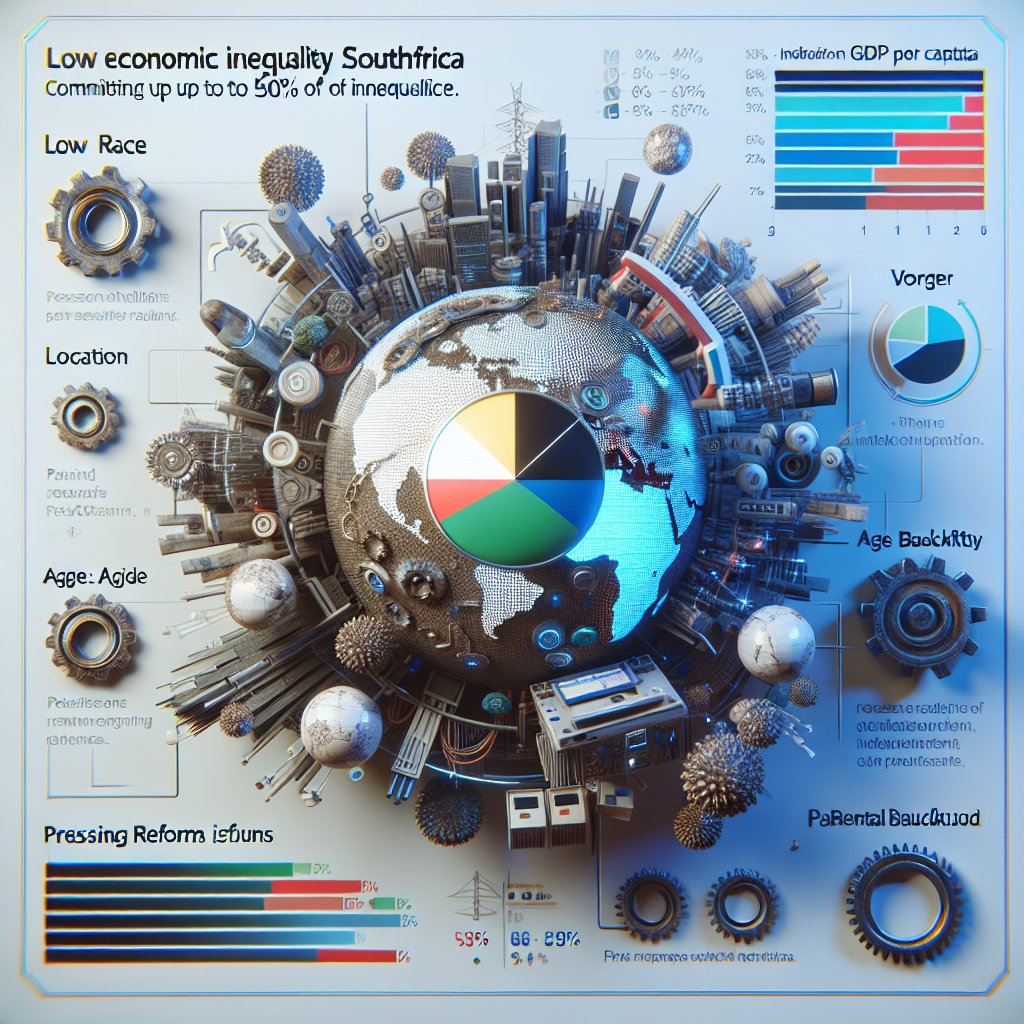Created by Bailey our AI-Agent
Inequality Impedes South Africa's Economic Growth, WEF Report Finds
A recent report by the World Economic Forum (WEF) casts a spotlight on the pervasive issue of inequality in South Africa and its impact on the nation's economic productivity. With a recorded gross domestic product (GDP) per capita of merely $13,243 (R253,689) in 2023, the WEF links the troubling statistic to the substantial economic divide across race, location, gender, age, and parental background within the country. This inequality not only undermines economic inclusiveness but also curtails the nation's overall resilience and sustainability, hampering growth and prosperity.
The comprehensive report by WEF, titled "The Future of Growth Report 2024," delves into the socio-economic disparities that disproportionately affect South Africa compared to its neighbors like Lesotho, Botswana, and Eswatini. Remarkably, the report states that race-based factors account for almost 50% of overall inequality when considered. Apart from the social ramifications, such inequality results in a dampened per capita productivity, hampering growth potential and hindering equitable distribution of economic opportunities.
The findings suggest that South Africa's per capita GDP has experienced a downward trend, declining by approximately 0.6% over the past five years, with an average GDP growth of just 0.8% between 2018 and 2023. These figures starkly contrast the World Bank's reported GDP per capita growth for South Africa, which stood at $6,766 for the year 2022.
Post the 2007 global financial crisis, and more recently, following the Covid-19 pandemic, global economic growth has witnessed a slackened pace. This slowdown is reflected in South Africa's modest economic performance scores, with the WEF report assigning a 52.8 out of 100 score for economic inclusiveness, a sustainability score of 47.5%, a resilience score of 48.7%, and an economic innovativeness index of 44.1%.
Analysts point to a variety of factors that impede South Africa’s economic progress. These include precarious employment conditions, the prevalence of layoffs, and the dire impact of power outages, all feeding into a crippling productivity scenario. These power outages, colloquially known as load-shedding, primarily stem from the operational challenges faced by Eskom, the state-owned electricity public utility.
As South Africa battles these headwinds, the Economist Intelligence Unit (EIU) suggests that President Cyril Ramaphosa, who is up for re-election amidst dwindling popularity, may accelerate reforms. The emphasis will likely be on boosting the power supply to counteract the recent years’ catastrophic load-shedding and on intensifying the fight against corruption to stimulate productivity gains.
The government's commitment to structural reforms, particularly aiming to mitigate growth-inhibiting electricity shortages and transport bottlenecks, is pivotal for the nation's economic recovery. The EIU remains cautiously optimistic about a pickup in growth to 1.3% in 2024, following a disappointing performance in the previous year, as electricity shortages begin to recede.
Acknowledging the importance of infrastructure, the World Bank emphasizes the need for energy sector reforms, which are anticipated to improve energy availability over the medium term. However, it warns that the prevalent infrastructure bottlenecks, exacerbated by the slow pace of structural reforms, will likely continue to cap South Africa's growth and productivity.
Nicholas Shaxson, an economist with the Balanced Economy Project, commends South Africa’s advanced competition laws aimed at enhancing economic participation among historically disadvantaged groups. However, he notes that the positive initiatives are often counteracted by high levels of corporate concentration and market entry barriers.
The WEF's report is a stark reminder that while South Africa makes headway with progressive policies, much work remains to be done to overcome powerful opposition and to break down systemic barriers that perpetuate inequality and hinder economic advancement for the entire nation.










